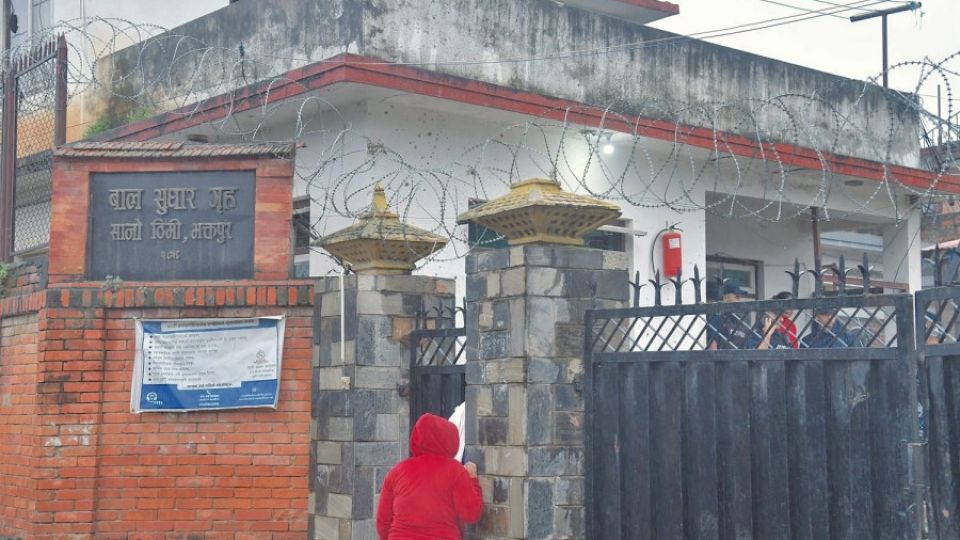July 11, 2024
KATHMANDU – At least 60 inmates fled the Jayandu Juvenile Correction Centre in Duduwa Rural Municipality of Banke district following a violent clash among themselves on Monday evening. The police managed to capture all but two absconders who are believed to have crossed over to India.
This is the third incident of violence in the correction centre in under a year. One minor lost his life while 11 others were injured after clashes among the inmates in September last year. In another incident, few inmates were injured following violent fights in August. As many as 275 juvenile delinquents are housed there.
“Not just here, every correction centre has the same problem. No place is functioning peacefully,” Khagendra Prasad Rijal, chief district officer in Banke, told the Post. “Last year, we had to handle a similar incident in Bhaktapur when I was posted there.”
On August 21, as many 297 juvenile inmates at the Underprivileged Children’s Educational Programmes in Bhaktapur clashed with security personnel, leaving 20 police officials and 15 juvenile inmates injured. The juvenile delinquents clashed with the police after one of the minors died under mysterious circumstances.
They not only clashed with the Nepal Police and Armed Police Force personnel but as many as 221 fled the centre, breaking its gate and compound wall. Three weeks later, on September 12, inmates from a juvenile centre in Birta of Birgunj Metropolitan City clashed among themselves.
A group of inmates transferred from the juvenile centre in Sanothimi, Bhaktapur had physically assaulted their leader. Some minors from Bhaktapur were transferred to Birgunj after the clash that injured 20 security personnel and 15 juvenile inmates.
Juvenile centres house children below 18 years who are convicted or are kept in custody for their involvement in crimes.
“We are worried about the proliferation of such incidents. However, such incidents will not stop unless we revise the existing law,” said Rijal.
A juvenile delinquent is a person who is under the age of 18 and commits an act that otherwise would have been charged as a crime if s/he was an adult. The minors, who commit a crime punishable by law, are kept in correction homes instead of being sent to a jail after court verdict, as per the existing law.
Those who cross 18 years of age before completing their jail terms too are kept in correction homes with the minors until they serve the required term.
Officials say the inmates who are above 18 years of age are violating the rules and pose a security threat. “We have written to the Ministry of Home Affairs to start the process to revise the law ensuring that those above 18 years of age are kept separately,” said Rijal.
The National Human Rights Commission, following the frequent incidents of violence, conducted monitoring visits to all correction homes across the country.
The country has eight juvenile correction centres—in Bhaktapur, Morang, Kaski, Makwanpur, Parsa, Rupandehi, Banke and Doti. The centres are tasked with bringing about changes in the attitudes and behaviour of the children who have committed crimes, and these places must follow specific criteria.
After the study, it became clear that the correction centres have serious managerial problems, according to officials at the commission.
Studies by the commission and other human rights organisations suggest conditions in these correction centres are as dire as those in ordinary prisons. They lack basic amenities and are overcrowded.
“There is an immediate need to revise the law while also improving the management of such correction centres,” Yagya Adhikari, a joint secretary at the commission, told the Post, adding the commission is soon coming out with its detailed study report.
Advocacy Forum Nepal, which conducted a situation analysis of several correction centres last year, had said the centres are overcrowded, and the food and water provided to the inmates are substandard. There is no proper treatment for ailing inmates and they also lack guidance, it pointed out. However, no good measures have been taken to improve their condition.


